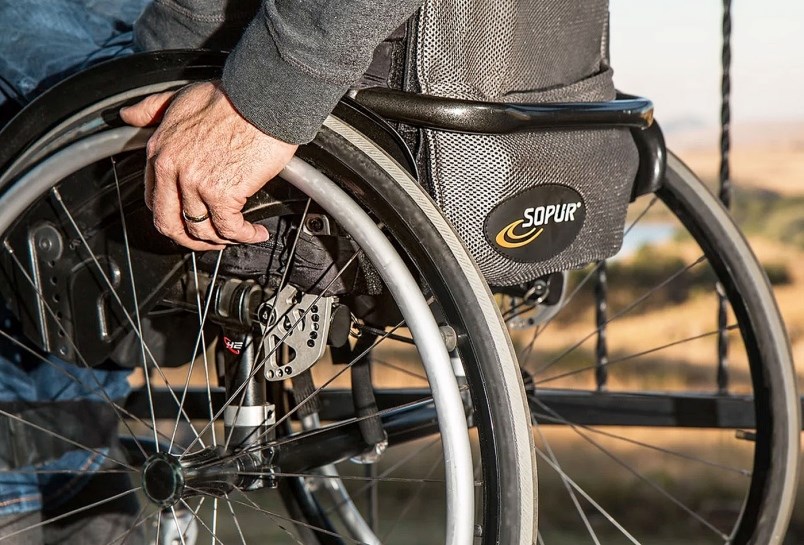November is Indigenous Disability Awareness Month (IDAM).
In 2015, IDAM was created by the BC Aboriginal Network Disability Society (BCANDS) and IDAM is now recognized in British Columbia, Saskatchewan, Manitoba, by the Assembly of First Nations, BC AFN Summit, Métis Nation of BC, Council of Yukon First Nations, the Town of Inuvik, and hundreds of other organizations.
Indigenous people in Canada experience a higher rate of disability than non-Indigenous Canadians and IDAM celebrates their achievements and honours their social, economic, and cultural contributions (see: www.bcands.bc.ca).
IDAM is important to me. I am an Indigenous mother and scholar of Métis ancestry who has been living with a progressive chronic condition (Multiple Sclerosis) for over 26 years.
I am categorically “disabled” due to significant mobility impairment accumulation.
To publicly communicate my limitations, I display a sign in my vehicle and use mobility aids to support my ambulation. I constantly self-advocate for extraordinary considerations to navigate our predominantly ableist world. As a person that “moves” differently and intensely preplans for everything, my physical realities are exhausting.
However, this is only part of my burden. Overcoming assumptions, stigmas, discrimination, and stereotypes of being Indigenous AND disabled is profound.
Fear and isolation can be as crippling as the condition itself and for more than 20 years, I harboured my potentially disabling affliction a secret.
In public school, university, and some of my workplaces, I encountered judgments of disability as “bad.”
I avoided calling in sick to work and wouldn’t dare miss a parent-teacher meeting, or an important social or professional gathering. Risking the perception of being incapable, incompetent, a nuisance, or lazy, was not an option.
It is important to know that Indigenous people traditionally held different perspectives on persons living with disability. Indeed, in our contemporary world, “disability” is a constructed identity that lends to persons being able to access different medical or health services, and be protected under the Canadian Charter of Human Rights and Freedoms. However, within traditional Indigenous views of physical, sensory, psychiatric, cognitive, neurological, or intellectual impairments, differentiation from able-bodied individuals did not exist.
The attributes and gifts one brought to the world did not include a disability identity and one’s relational role in the community always prevailed.
Traditional Indigenous perspectives on disability are an understudied/under-researched area of scholarship, but occasions like IDAM are an important time to reflect on perspectives of difference and embrace acceptance and belonging.
Dr. Rheanna Robinson, PhD, is a faculty member in the Department of First Nations Studies at UNBC. She is a committed advocate and scholar for Indigenous education and disability awareness.



